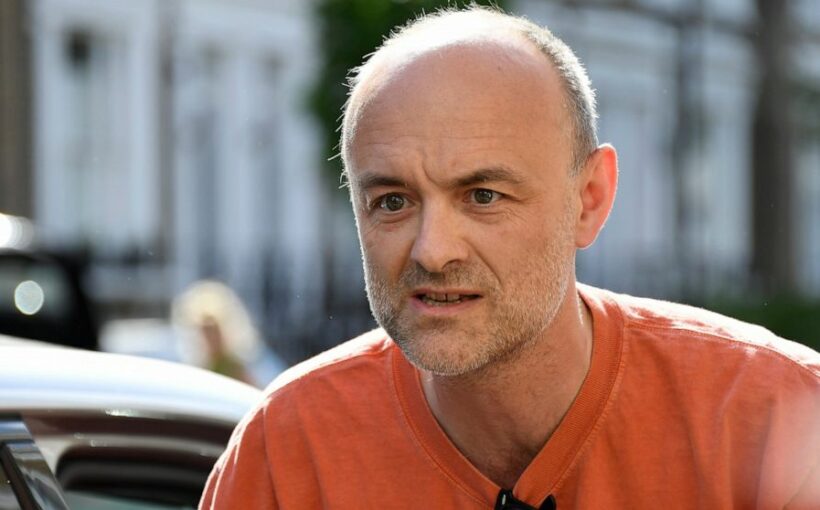LONDON — British Prime Minister Boris Johnson is being accused of overseeing a chaotic government whose failure to act quickly against the coronavirus caused thousands of unnecessary deaths.
The allegations come not from opposition politicians but from Dominic Cummings, the volatile adviser who until late last year was Johnson’s most powerful and trusted aide.
In recent days, Cummings has directed a torrent of criticism at Johnson’s Conservative government in an ever-lengthening string of Twitter posts. On Wednesday, he plans to make the claims in person, testifying on live television to lawmakers investigating Britain’s handling of COVID-19.
Cummings accuses the government of sticking with a policy of “herd immunity” — allowing the virus to spread through the population while protecting the most vulnerable — until it was too late to prevent draconian lockdowns and many deaths.
The U.K. has recorded almost 128,000 coronavirus deaths, the highest toll in Europe, and had of the deepest recessions in the world when lockdown shut down much of the economy. A mass vaccination campaign started in December has brought infections and fatalities down sharply.
On Twitter, Cummings has alleged there was “total & utter chaos” in government as the virus swept Britain in early 2020. He claims a controlled outbreak leading to herd immunity was “the official plan” until early March 2020, when the government realized that would “lead to catastrophe.”
He tweeted: “If we’d had the right preparations + competent people in charge, we wd probably have avoided lockdown1, (asterisk)definitely(asterisk) no need for lockdowns 2&3.”
The government denies Cummings’ allegations. The prime minister’s spokesman, Max Blain, said “herd immunity from infection has never been government policy.”
Cummings’ critics are not surprised he is causing a fuss. The self-styled political disruptor has long expressed contempt for the civil service, many politicians and much of the media.
He was one of the architects of the successful campaign to take Britain out of the European Union, credited with coining the powerfully simple slogan “Take back control.” He also hired a firm linked to Cambridge Analytica, which detractors say unleashed the poison of data-harvesting and social-media manipulation into the British political bloodstream.
When Johnson, co-leader of the Brexit “leave” campaign, became prime minister in 2019, Cummings was appointed his top aide, a powerful post that saw him dubbed “Boris’s brain.” He slouched around Downing St. in sweatpants and T-shirts and spoke of his desire to radically reconfigure government. He irked many politicians, who grumbled about unelected advisers wielding undue influence.
Cummings was thrust from the shadows into the spotlight in May 2020, when newspapers revealed he had driven 250 miles (400 kilometers) across the country after contracting COVID-19, despite a nationwide stay-at-home order. His defense — that he was seeking childcare help from relatives in case he got sick — rang hollow to many Britons who had made sacrifices and endured isolation to follow the rules.
Johnson resisted calls to fire Cummings for flouting rules the government had imposed on the rest of the country. But a few months later, Cummings quit, walking out of 10 Downing St. with a box full of possessions after losing a power struggle inside the prime minister’s office.
He kept out of the public eye for several months, before unleashing his Twitter storm in recent weeks ahead of Wednesday’s testimony to Parliament’s health and science committees.
Sam Freedman, who worked with Cummings as an adviser at the Department for Education, told Sky News that Cummings wanted to distance himself from decisions, even though he was at the heart of government when they were made.
“He is a very acute analyst of problems, but he often doesn’t apply that analysis to his own behavior,” Freedman said.
Source: Read Full Article
